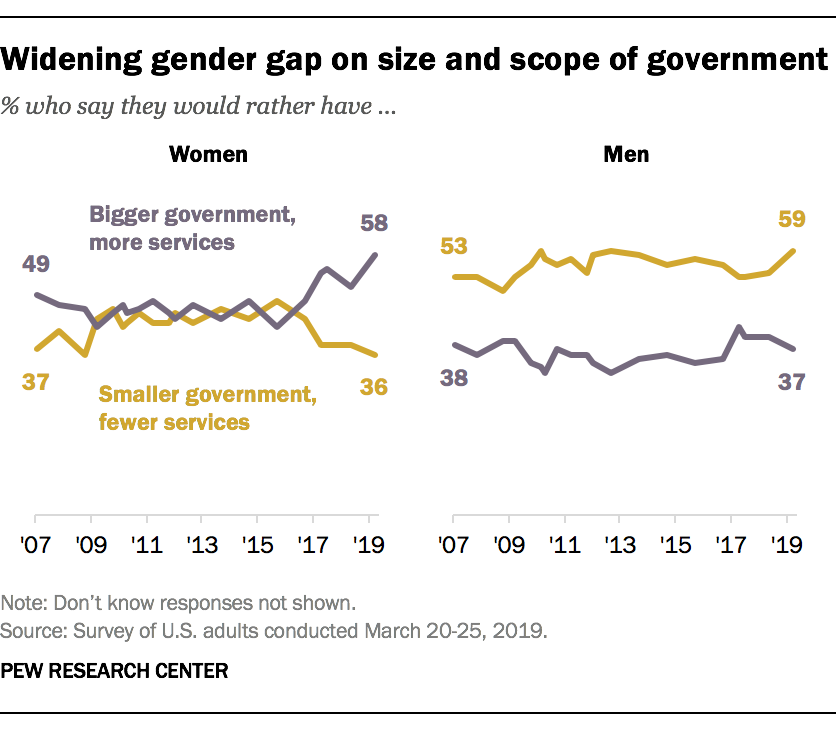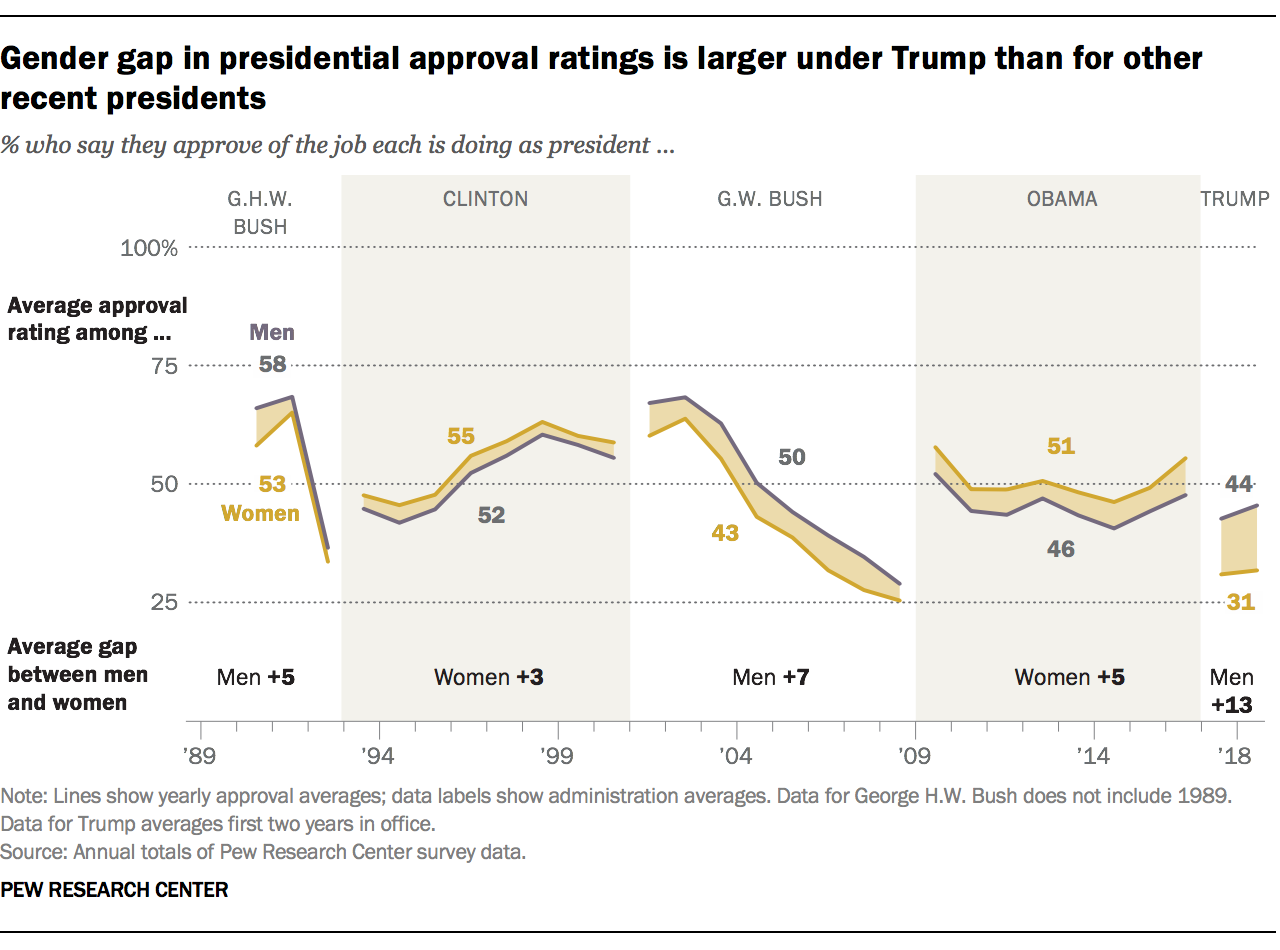Gender differences about the size and scope of government have been evident for more than a decade, but they have widened in recent years.
 And while the gender gap in presidential job approval also is not new, it is wider for Donald Trump than for his predecessors.
And while the gender gap in presidential job approval also is not new, it is wider for Donald Trump than for his predecessors.
In a new Pew Research Center survey, nearly six-in-ten women (58%) say they prefer a bigger government providing more services to a smaller government providing fewer services (36%). Among men, the balance of opinion is nearly the reverse: 59% of men prefer a smaller government (37% prefer bigger).
The gender differences on this measure are as wide as at any point in more than a decade. The change is largely attributable to an increase in the share of women expressing a preference for bigger government, while men’s attitudes on this question are little changed.
During most of Barack Obama’s presidency, women were roughly divided on this question: As recently as September 2016, 44% of women preferred a smaller government providing fewer services, while 48% preferred a bigger government providing more services. Today, the percentage of women who prefer bigger government has risen to 58%. In September 2016, just prior to the 2016 election, 56% of men said they would rather have a smaller government. Today, 59% say they would rather have a smaller government.
Trump’s job approval rating has been more deeply divided along partisan lines – and across generations – than for other recent presidents. This also is the case when it comes to gender: There are wider differences between men and women in views of Trump’s job performance than for any president dating to George H.W. Bush.
 Currently, 47% of men say they approve of how Trump is handling his job as president, with an equal share saying they disapprove (47%). By contrast, 32% of women say they approve of how Trump is handling his job as president; 63% say they disapprove.
Currently, 47% of men say they approve of how Trump is handling his job as president, with an equal share saying they disapprove (47%). By contrast, 32% of women say they approve of how Trump is handling his job as president; 63% say they disapprove.
Looking more broadly, over his first two years in office, Trump’s average approval rating was much higher among men (44%) than among women (31%). This 13-percentage-point gender gap is wider than for any of his recent predecessors, dating back to George H.W. Bush.



